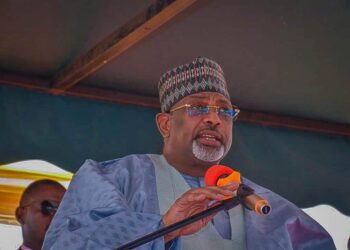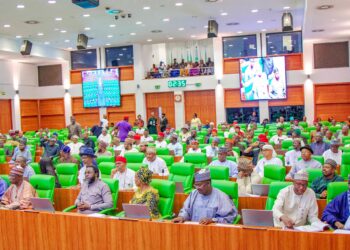The latest data from the Central Bank of Nigeria (CBN) has shown that credit to Nigeria’s private sector rose to a record level of N41.8 trillion as of December 2022.
This represents N6.61 trillion in new net loans compared to N35.19 trillion as of the beginning of the year.
Compared to the previous year, net loans increased by 23.65% compared to N5.04 trillion recorded in 2021, and a 47.7% increase from 2020. Credit to Nigeria’s private sector rose despite the high-interest rate policy of the CBN during the year under review.
Recall that the Central Bank raised the benchmark interest rate by a cumulative 500 basis points in 2022 from 11.5% to 16.5% before raising it by an additional 100 basis points in January 2023.
Breakdown of the numbers: The credit to the private sector increased in 2022 by 18.8% from the 2021 figure, representing the highest level on record.
- Also, the money supply increased by N8.32 trillion to N52.14 in 2022, while the currency in circulation declined by N313.1 billion, largely attributable to the cash swap initiative by the CBN following the redesign of the new naira notes.
- Credit to the government also increased significantly, with N11.33 trillion in new credit being acquired in the period under review, representing a 92% surge from 2021’s loan figure.
- As of December 2022, total credit to the government stood at N24.66 trillion.
The bulk of the government’s credit comes as a result of the Central Bank’s Ways and Means provision. This clause allows the government to finance deficits caused by revenue shortfalls with emergency loans from the apex bank.
Credit demand defies monetary policy: Credit to the private sector of the Nigerian economy rose significantly despite the tightening monetary policy position of the CBN in 2022.
- Up to April 2022, the central bank held the monetary policy rate (MPR) at 11.5% to stimulate economic growth for 20 consecutive months. However, rising inflation in 2022 caused the apex bank to raise the MPR to a 16.5% rate.
- While this may arguably have had an effect in reducing the amount of currency in circulation, it has failed to substantially discourage business lending.
Distribution of sectoral credit: An analysis of CBN statistics from Q3 2022 shows that the following sectors are the main recipients of deposit money banks (DMBs) credit: Manufacturing; Oil and Gas; Government, and; Trade/General Commerce. These sectors have continued to demand credit despite interest rate hikes, inflation, and a scarcity of foreign exchange.
- Conversely, some sectors have stagnated in lending from DMBs. Lending in the Mining & Quarrying sector has stalled since the increases in MPR after Q1 2022, a phenomenon also experienced in the Power & Energy sector.
- The increased private sector credit has not led to equivalent economic growth, signifying that acquired credit did not mostly go towards increased production and may have been used instead for personnel costs and debt servicing.
- Specifically, Nigeria’s economy grew at a slower rate in Q3 2022 to 2.25% from 3.54% and 4.03% recorded in the previous and corresponding quarters of 2021.





















